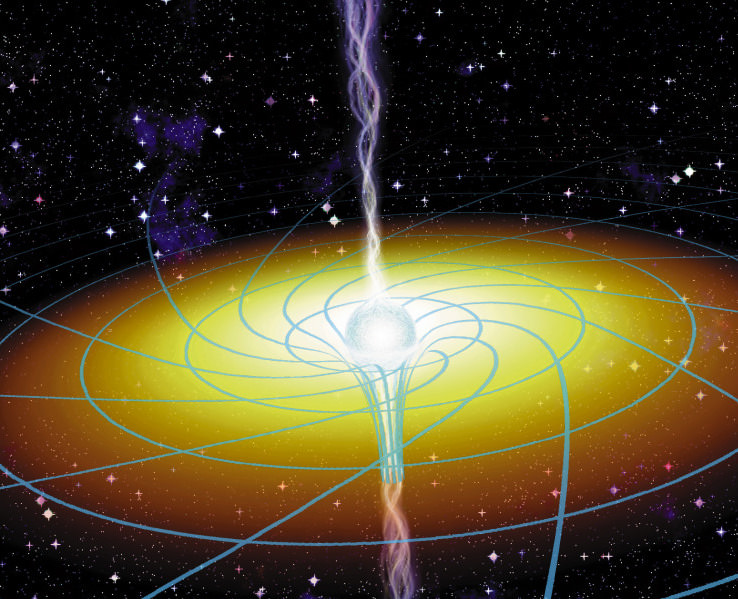I
ihwip
Guest
I read: http://www.space.com/scienceastronomy/u ... 00427.html
I don't like the white hole concepts. Why do they always have to use exotic physics? I have my own similar model concept but it does not incorporate white holes. It uses a "Reduced Infinity" concept.
Basically my idea is that when a black hole becomes a singularity it in fact becomes a new universe at the point of the big bang. This new universe has the same physics as our universe except at a smaller scale. This would mean all universes would be "Open". The reason matter cannot escape the universe inside is the same reason that matter cannot escape the event horizon. The infinite energy required would translate into an infinite distance an object would have to travel inside the pocket universe in order to reach the event horizon.
The difference is that instead of spewing all the matter out a wormhole/whitehole/whatever...it is still staying in our universe but the laws of physics inside the event horizon are crushed down. Protons would be much smaller from our perspective for instance. They would still behave the same way in the new universe when viewed from inside this new universe. Since all physical effects are shrunk down at the same rate everything in the black hole would look and act just like our universe.
I don't like the white hole concepts. Why do they always have to use exotic physics? I have my own similar model concept but it does not incorporate white holes. It uses a "Reduced Infinity" concept.
Basically my idea is that when a black hole becomes a singularity it in fact becomes a new universe at the point of the big bang. This new universe has the same physics as our universe except at a smaller scale. This would mean all universes would be "Open". The reason matter cannot escape the universe inside is the same reason that matter cannot escape the event horizon. The infinite energy required would translate into an infinite distance an object would have to travel inside the pocket universe in order to reach the event horizon.
The difference is that instead of spewing all the matter out a wormhole/whitehole/whatever...it is still staying in our universe but the laws of physics inside the event horizon are crushed down. Protons would be much smaller from our perspective for instance. They would still behave the same way in the new universe when viewed from inside this new universe. Since all physical effects are shrunk down at the same rate everything in the black hole would look and act just like our universe.



